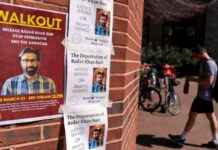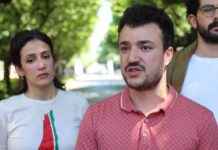Chennai: Tamil Nadu’s Chief Minister, M.K. Stalin, made headlines recently with an unprecedented announcement. During the centenary valedictory event celebrating the discovery of the Indus Valley Civilization by Sir John Marshall, Stalin revealed a groundbreaking initiative. He offered a staggering prize of one million dollars to individuals or organizations capable of deciphering the mysterious scripts of the ancient Indus Valley Civilization.
The enigmatic symbols and inscriptions of the Indus Valley Civilization have long puzzled historians, archaeologists, and linguists worldwide. Despite decades of research and technological advancements, the script remains a baffling enigma, shrouded in mystery even a century after its discovery. In a bid to unlock this ancient code and shed light on one of the world’s oldest civilizations, Stalin’s government has taken a bold step to incentivize further exploration and study.
Stalin’s announcement, made in the presence of esteemed scholars and dignitaries, underscores the enduring fascination and intrigue surrounding the Indus Valley Civilization. As experts and enthusiasts continue to grapple with the challenges of deciphering its ancient script, the Chief Minister’s generous prize offers a compelling incentive for innovative breakthroughs in the field of historical linguistics.
Quest for Clues: Unraveling the Indus Valley Mystery
The Indus Valley Civilization, also known as the Harappan Civilization, flourished in the northwestern regions of the Indian subcontinent from approximately 3300 to 1300 BCE. Renowned for its advanced urban planning, sophisticated drainage systems, and intricate trade networks, this ancient civilization left behind a wealth of archaeological artifacts and ruins that continue to captivate researchers and historians.
Central to the enigma of the Indus Valley Civilization are its undeciphered scripts, found on seals, tablets, and pottery fragments excavated from various sites. Despite numerous attempts to crack the code, the script’s elusive nature has thwarted all decipherment efforts thus far. The complexity and lack of linguistic continuity pose significant challenges to scholars seeking to unlock the meanings embedded in these ancient symbols.
In recent years, advancements in computational linguistics and artificial intelligence have provided new tools and methodologies for analyzing and interpreting ancient scripts. Collaborative efforts between archaeologists, linguists, and data scientists have yielded promising results in other historical scripts, such as Linear B and Mayan hieroglyphics. By harnessing cutting-edge technologies and interdisciplinary expertise, researchers hope to unravel the secrets of the Indus Valley script and illuminate the lives and beliefs of its ancient inhabitants.
Implications and Impact: Bridging the Past and Present
The initiative launched by Chief Minister Stalin holds profound implications for our understanding of human history and cultural heritage. Deciphering the Indus Valley script would not only enrich our knowledge of ancient civilizations but also foster greater appreciation for the linguistic diversity and intellectual achievements of our ancestors.
By offering a substantial monetary reward for the successful decoding of the Indus Valley script, the Tamil Nadu government signals its commitment to promoting historical research and academic excellence. The prize serves as a testament to the enduring legacy of the Harappan Civilization and the enduring quest for knowledge that transcends temporal and geographical boundaries.
As researchers and scholars embark on this intellectual journey to unlock the secrets of the past, they are reminded of the enduring legacy of human curiosity and ingenuity. The Indus Valley script, with its tantalizing mysteries and hidden meanings, stands as a testament to the resilience and creativity of ancient civilizations, inspiring us to delve deeper into the annals of history and discover the untold stories that shape our collective heritage.
In conclusion, Chief Minister M.K. Stalin’s bold initiative to offer a million-dollar prize for deciphering the Indus Valley script represents a significant milestone in the quest for historical knowledge and understanding. As researchers and linguists around the world rise to the challenge, they carry forward the torch of intellectual exploration and discovery, bridging the gap between past and present in a quest for enlightenment and insight.
































